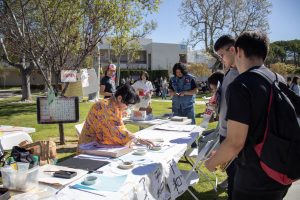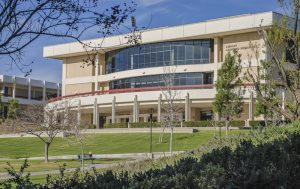Disasters are coming, students need to learn how to survive
March 3, 2016
Do we know how to take care of ourselves if or when the economy collapses? Or if an earthquake wipes out Los Angeles and professional services become non-existent? Most American college students have not been trained in the art of survival and self preservation. I think that the time has come to prepare ourselves.
According to an article, on the survival focused website Sasionline.com, titled “The Top 10 Must Have Survival Skills,” there are ten basic skills everyone should know in case of disaster or emergency. The skills range from how to find and grow food to develop the general mindset of survival and self-preservation.
“You must learn to see in your mind that certain items can be very useful for your survival,” according to the article. “Having a survival mentality will greatly increase your chances in finding solutions to problems that will surely occur in a survival situation.”
We know how to count and spell, but we don’t know how to find food outside of a grocery store or how to build shelter. The current school curriculum has failed to prepare us for any sort of situation where we have to fend for ourselves, leaving us to learn these things on our own.
To be fair to the U.S. education system, we have white-collar jobs, live in homes that have running water and electricity and until recently there has been no pressing need to learn how to survive without these things. The U.S. economy is not as stable as it once was and scientists predict that a mega earthquake could hit California in the next 30 years, according to an article on the website Phys.org.
If we are to survive any sort of pending disaster we need to prepare ourselves on our own time.
“I am prepared for the worst, but hope for the best,” said British Politician and writer Benjamin Disraeli
Similarly, the Boy Scouts say “be prepared,” They prepare young men to make ethical and moral choices over their lifetimes, according to their website, but they also teach them to be prepared, productive, self-reliant adults active in their communities earning emergency preparedness.
There are also academic benefits to learning self-preservation. David Jones, scout executive and chief executive officer for the Ventura County Council Boy Scouts says that Boy Scouts earn better grades and are more physically fit.
“It’s been proven that because they’re in Boy Scouts their grade point averages will go up one point,“ said Jones. “They’re twice as likely to go to college… to have a healthy fitness routine.”
Johanna Pimentel, Child Development Center supervisor at Moorpark College emphasized the value of learning basic survival skills when she said that schools should incorporate more practical life skills and reduce some of the other information being taught,
“I think [practical skills] should be involved. Parts of it should replace… regular school… things that are just being crammed down,” said Pimentel.
In addition to self-preservation Pimentel said that learning survival skills improves overall quality of life.
“Having those basic self-help skills, that’s what it’s all about, that’s how it should be,” said Pimentel. “How much more meaningful is it to be able to help someone when they are hurt? I believe that is what learning should be all about.”
The Boy Scouts is a great resource for young boys, but how can the rest of us learn outdoor survival skills without modern conveniences?
The Survival Skill Training School of California offers a critical skill wilderness-survival crash course in Orange County. The school also offers weekend-overnight training sessions and a 7 Day Cross Climate Skills Intensive course, according to the school’s website. The California Survival School also offers a Core Survival Skills Clinic in Orange County. The clinic covers fire building, building shelter, how to collect drinkable water and how to find food, according to the school’s website, https://www.casurvival.com/wilderness-survival-core-skills-clinic/.
The society we live in teaches us to listen to our teachers and memorize information, grooming us to become good employees, so we can feed ourselves and our families and continue to live comfortable lives. But if all that were to change then we must be prepared and adapt if we are to survive. We can learn, but, at present, we have to go outside of conventional education to do so.
“Earth and sky, woods and fields, lakes and rivers, the mountain and the sea, are excellent schoolmasters, and teach some of us more than we can ever learn from books,” said Sir John Lubbock, English philanthropist and scientist.







